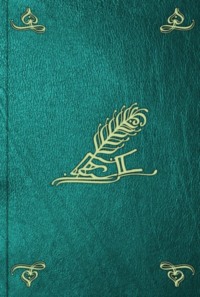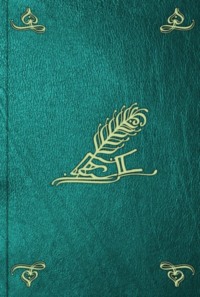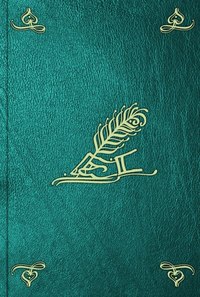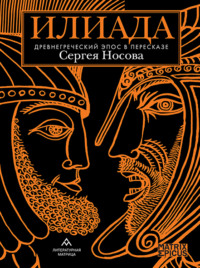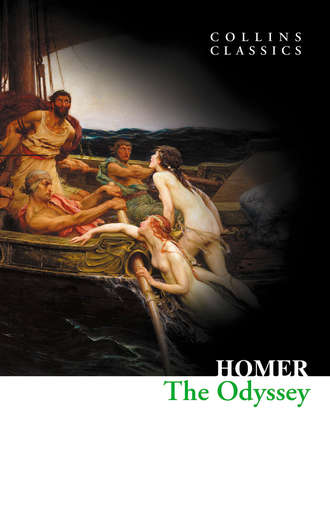
Полная версия
The Odyssey
So he spoke: and Asphalion the great man’s handiest retainer poured water over their fingers, which they then employed on the rich food set ready. But Helen, of the line of Zeus, called to mind another resource. Into the wine they were drinking she cast a drug which melted sorrow and sweetened gall, which made men forgetful of their pains. Whoso swallowed it mixed within his cup would not on that day let roll one tear down his cheeks, not though his mother and his father died, not though men hacked to death his brother or loved son with the cutting edge before him and he seeing it with his eyes. These drugs of subtle potency had been furnished the daughter of Zeus by the wife of Thon, even Polydamna the woman of Egypt, where the ploughlands excel other plough-lands of earth in bearing abundance of medicines: of which some when compounded are healing and others baneful. Every man of that country is a physician of knowledge incomparable, for they are of the true strain of Paeon the healer of the Gods.
Helen, after she had mixed the Egyptian drug with their wine and bidden them serve it, returned to the conversation and said, ‘Menelaus, son of Atreus and godson of Zeus, and you other sons of the great: it is the way of Zeus to dispense good and evil, now to this man and now to that. He is the all-mighty. Your present lot is to feed, sitting in the halls, and to cheer yourselves with tales, of which I will lead off with one that is seasonable, touching a single one of those innumerable adventures of Odysseus; one only, for beyond all my listing or telling were the exploits of that hardy one.
‘Marvellous was this adventure which the iron-nerved man conceived and dared to execute in the Troad of unhappy memory to all Achaeans. He punished himself with humiliating stripes and threw a coarse wrap about his shoulders as if he were a bondman: and so went down into the broad streets of the hostile city amongst his enemies, hiding himself in his foreign shape and making believe he was a mendicant, a figure very unlike that he cut in the Achaean fleet. Yet in this disguise he went through the city of the Trojans – and not a soul of them accosted him. But I knew who this man was and challenged him again and again while he cunningly eluded my questions. After the washing and anointing with oil when I was clothing him in new garments I swore to him a mighty oath that I would not declare to the Trojans that it was Odysseus, before he had got back to the swift ships and the bivouacs. Then he told me all the intention of the Achaeans: and get back to them he did, replete with great fund of news, after killing many Trojans on the way with his long pointed sword: whereupon the Trojan women wailed shrilly: but my heart laughed, for now my desire had shifted to get back home, and deplored too late the infatuation engendered by Aphrodite to lead me away from my own dear country, abandoning child and marriage-ties and a lord not poor in wit or looks.’
Fair Menelaus took up the tale: ‘Of all these things, my lady wife, you have said what is needful. In my time I learnt the counsel and thought of many brave men, and traversed many countries, but never set eyes on another man as high-hearted as my beloved Odysseus. The sort of deed his bold heart would imagine and dare to do was such an adventure as that carved horse within which all we flower of the Argives lay hidden, with death and destruction our guerdon for Troy. You came to us then, my lady: surely some god prompted you in desire to glorify the Trojans. Godlike Deiphobus had escorted you thither. Three times you circled our packed lair, stroking it with your hands and calling by name upon the leaders of the Greeks. Your voice was the voice of all our absent wives. Myself and the son of Tydeus and stout Odysseus were inside and heard you calling: and of a sooth two of us, Diomedes and I, raged furiously to leap up and call you or quickly to answer you from within. But with main strength Odysseus held us back against our passions. Wherefore all the other sons of the Achaeans were still: save only Anticlus who was about to address you, when Odysseus with his great hands gripped his jaws and held on, thus saving all the Achaeans: until Pallas Athene at last called you away.’
To him staid Telemachus replied: ‘Son of Atreus, Menelaus, foster son of Zeus, bulwark of the rank of battle: all the worse is our pain. For this courage did not deliver him from grievous ruin nor would it have availed if his heart had been of unflawed iron. But come now, dismiss us to our beds that we may stretch out and take our fill of the sweetness of sleep.’
At his word Helen of Argos ordered her house-maidens to range beds under the sun-porch, piling them with lovely purple blankets covered smoothly with rugs and thick woollen cloaks on top of all. The maids left the hall, torch in hand, and made ready the beds. Then the usher showed the guests out. So they slept there, in the entry, heroic Telemachus and Nestor’s brilliant son: while the son of Atreus lay remote in the great house, and beside him Helen of the flowing robes, fairest of women.
At dawn’s first redness in the sky Menelaus of the resounding war-cry arose from bed, clothed himself, belted on a sharp sword and bound gay sandals beneath his lively feet. Like a god he went forth from the married quarters and calling Telemachus to sit by him, greeted him and said, ‘What promptings drove you to me, princely Telemachus, here to Lacedaemon the fair, over the broad swelling sea? Public or private need? Confide in me freely.’
Telemachus answered him with advisement. ‘Atrides-Menelaus the god-nurtured, pre-eminent when battle is ranged, I come to know if perchance you can give me any rumour of my father. My household is being eaten up and my fat properties ruined. Our home is full of evil-minded men, these inordinately proud suitors of my mother, who ever butcher my numerous sheep and slow swaying oxen with the crumpled horns. Therefore am I come pleading to your knee that you may consent to tell me the story of his pitiful destruction as you saw it with your eyes or as you learnt it from the lips of another wanderer. Indeed his mother conceived him to great misery. Condone nothing and spare me nothing out of misplaced pity: but relate just as much as you saw of him. If the excellent Odysseus my father ever fulfilled word or pledge of his to you in that Troy of unhappy suffering for the Achaeans, then I pray you recompense me now by remembering it and dealing with me as faithfully.’
Menelaus flushed with anger and cried to him: ‘The dastards, who would lay their puny selves in the bed of that whole-hearted warrior! It is as if a deer had laid her newborn suckling fawns in a lion’s den and gone out searching across the mountain-spurs and green valleys for her pasture. When the strong beast returns to the thicket which is his lair he will fearfully kill those poor intruders: and even such a mean death shall Odysseus deal out to these pests. By Zeus our Father, and Athene, and Apollo! I can remember how once in luxurious Lesbos Odysseus rose up in a rage and wrestled with Philomeleides and threw him strongly: and all the Greeks rejoiced. If only he might confront the suitors with that old strength. How swiftly would fate close on them and turn their nuptials into bitterness! As for these questions you entreat of me I promise you to distort nothing nor let myself speak beside the truth, nor shall I trick you. Yea, not one word will I hide from you or cover up of all that the Ancient of the Sea, the Infallible, told me.
‘It was in Egypt. I was eager to return but the Gods delayed me there because I had not perfected their full ritual sacrifice. Ever jealous the Gods are, that we men mind their dues. In the surge that breaks across the mouth of the river of Egypt there lies a certain island which men called Pharos, no further from the land than a laden ship will make in the daylight hours, granted that she has a favouring wind to bluster her squarely forward. In it is a harbour with good landing beaches and clean, deep wells of fresh water, from which, after drawing their fill, men run down the trim hulls into the sea. In this island the gods kept me for twenty days, nor ever did there blow a breath of those sea-breezes which inspire ships to move over the wide ridges of the sea.
‘And now would our last rations have been devoured and with them the courage of my men, had not a divinity taken pity on me and been merciful. Eidothea she was, that daughter of stalwart Proteus, the sea’s venerable lord. The sad sight of me touched her heart on a time she met me wandering furtively apart from my followers, who daily quartered the island, angling with hooks that they had bent up, for fish to allay the hunger which griped their bellies. Eidothea, however, drawing near called me and put a question: “Stranger, are you foolish or to such a point easy-going that freely you abandon yourself to enjoy the sense of pain? All this long time you are prisoned in the island and put no term to the delay, though the spirit of your company diminishes.” Thus she addressed me: and I in my turn replied, “Whatever one of the goddesses you are, let me protest that I am not willingly held here. It would seem that I have transgressed against the immortal gods which are in high heaven. Tell me therefore of your knowledge (for the Gods know all) which deathless one it is who fetters me here and prevents my leaving? Also of my return; how is that to be managed across the swarming deep?”
‘So I said: and forthwith the fair goddess answered, “Freely will I inform you, Stranger. This is the haunt of the authentic Ancient of the Sea, Proteus of Egypt, the Immortal One, who knows the unplumbed ocean-pits and is first minister to Poseidon. Rumour makes him my father by course of nature. If you can but summon strength to lie in wait for him and take him, then he will impart to you how and where and when your course should be and what return you will have, riding over the fishes’ element. He will even tell you, heaven-nurtured, if you press him, what good or evil has befallen your homes while you have been wearing this weary road.”
‘Taking her up I said, “This ambush, Goddess, must be of your designing if it is to succeed; otherwise be sure the old divinity will see or hear something suspicious and avoid my snare. It is pain for mortal man to compel a god.”
‘The glorious goddess acceded instantly. “Hear then this detailed plan. When the climbing sun has reached the zenith of its sky, even then daily does the unerring Ancient of the Sea come forth from his deep with the breath of the west wind to attend him and drape him in its darkling ripple. He comes out, into the wave-worn caves, and lies him down to rest: while drove upon drove of his seals, bred from salt-water by an ocean-nymph, forsake the grey brine and sleep too around him, bitter-scenting the place because their breathing holds the bitterness of the salt abysses of the sea. Thither I will bring you at the break of day and set you properly in ambush; you and three of your companions, carefully chosen as the trustiest men of your staunch ship. And now I will warn you of all the formidable tricks of this old god. First he will muster his seals, to count them: and when he has fingered them all off and recognized each one, then he will lie down in their midst like a shepherd in the midst of a flock. When you see him settle down, at that moment call up your mighty strength and hold him there, though he will struggle vehemently, desperately, to escape you. In his urgency he will assume all shapes, of whatever things there be that creep upon the earth: and he will turn to water and to flaming heavenly fire: but do you hold to him, unflinchingly, gripping ever the tighter: and at the last he will speak in his own nature and as you saw him when he lay down to sleep. Then indeed, hero, cease your effort and let the old man be: while you ask him which of the gods is angry with you and how you shall return home across the fish-quick sea.”
‘Having spoken she dived beneath the billows: while I plodded away to the ships drawn up on the beach. My mind as I went was all clouded with perplexities. However I did regain the ships and the sea: and by them we made our supper while immortal night came down. Then we stretched out to sleep with the breaking of the surf beside us.
‘At the first red finger of daybreak in the east I was again afoot, pacing the verge of the outstretched sea in most earnest supplication to the gods: then I chose three of the company, the three I could most trust in any undertaking. As for the goddess she had been down into the broad bosom of the sea and brought back from the depths the pelts of four seals all newly flayed. She had thought out a way of deceiving her father, and had dug lying-places in the sand of the sea-shore: by them she sat awaiting us. We came to her side and she made us to lie down in these lairs, where she threw a seal-skin over each form. Then indeed our vigil was like to have been most terrible, so hard to bear was the deathly stench of the sea-born seals. Indeed what man would choose to couch beside a monster of the deep?
‘The goddess it was who saved us and refreshed us greatly by bringing to each one of us and setting under our noses scented ambrosia, so marvellously sweet that it abolished the animal stink. Thus the whole morning we endured hardily while the seals came out all together from the main and basked in ranks along the water’s edge. At noon the Ancient of the Sea himself came forth and found his fat seals and went down the line of them to add up their number; counting us as the first four beasts, his heart not warning him of the fraud afoot. Then he laid himself down. We shouted our cry and leaped upon him grappling him with our hands: to find that the old one had in no wise forgotten the resources of his magic. His first change was into a hairy lion: then a dragon: then a leopard: then a mighty boar. He became a film of water, and afterwards a high-branched tree. We hardened our hearts and held firmly to him throughout.
‘At long last the old wizard grew distressed and broke into words, questioning me: “Son of Atreus, which God conspired with you in this plan to ambush me and take me against my will? What is it that you must have?” So he said, and in reply I spoke as follows: “Ancient: you know. Why confuse our issue by questions? I am detained too long in this island and can find no token why: so that my heart grows faint. Therefore do you now, as one of the all-knowing Gods, tell me which of the Immortal Ones hobbles me here and delays my journey. How is my return to be contrived, over the sea and its thronging fish?”
‘At once he answered me, “Why, of course your fault was in not paying to Zeus and to the other gods liberal sacrifice before your setting off. This would have ensured the quickest passage to your native land, by ship across the wine-dark sea. Now it is ordained that you shall not see your friends nor reach your well-appointed house in the country of your fathers until once again you have entered the river of Egypt (the divine river fed by heavenly rain) and offered their sacramental hecatombs to the eternal masters of the open skies. Thereafter the gods will give you the road of your desire.”
‘So he said, and my modest spirit quailed within me when I heard that I must once more cross the shadowy main that long and woeful way to Egypt. Nevertheless I found words to answer him. “I will carry out your bidding, Venerable One: yet I pray you give me also a clear word on this other matter. All those Achaeans whom Nestor and I left when we sailed from Troy – did they get home undamaged with their ships, or were some lost, either by harsh fate in shipwreck or in their comrades’ arms, after their war had been well ended?”
‘This was my question. And he replied, “Son of Atreus, why enquire too closely of me on this? To know or to learn what I know about it is not your need: I warn you that when you hear all the truth your tears will not be far behind. Of those others many went under; many came through. How many fell in battle your eyes saw: but two only of the chiefs of the bronze-corseletted Achaeans died on the way back. One other is still somehow alive, pent and languishing in the boundless sea. Aias was wrecked amongst his long-oared ships by act of Poseidon, who carried him to the huge cliffs of Gyrae, yet delivered him from the waves. Thus he would have escaped destruction despite the hatred which Athene nursed for him if he, infatuate in his frantic pride, had not cried out an overweening word – how in the teeth of the Gods he had escaped the sea’s mighty void. Poseidon heard this high proclaiming and snatched at his trident: with labouring hands he let drive at the rock of Gyrae and hacked it through. The stump remained, but the jagged pinnacle on which Aias had first pitched, boasting and blaspheming, broke off and fell into the sea, carrying him down into the vasty seething depths: where he died, choked in its briny water.
‘“As for Agamemnon, your brother, he somehow escaped his fates and got away in his shapely vessels. Our Lady Hera was his saviour, till he had almost attained to Maleia, that steep mountain. There a tempest fell upon him and snatched him from his course. It carried him, deeply groaning, across the fish-infested waves to that butt of land where Thyestes dwelt of old in his settlements: but now Aegisthus the son had succeeded him. Yet from here also prospect of a sure return appeared. The gods once again changed the wind to fair: homeward they came; and as the joyful leader touched upon his own land he bent down and kissed its soil with his lips, crying hot tears of gladness, for that at last he saw his native place.
‘“Yet from above, from the look-out, the watchman had seen him – a sentry posted by guileful Aegisthus with promise of two gold talents for reward of vigilance. A whole year had he been on guard lest King Agamemnon get past without being spied and first signal his return by headlong attack upon the usurpers in his house. The watchman ran with his news to the house of Aegisthus, the shepherd of the people, who straightway put his cunning plot in train. A chosen twenty of the ablest-bodied local men he hid in ambush, while on the other side of the great hall he had a high feast spread. Then with welcoming horses and cars, but with iniquity in his hollow mind, he went forth to meet Agamemnon the king. Into his house Aegisthus ushered him (all unsuspicious of the death hidden there) and feasted him, and after cut him down – as a man might cut down an ox at its stall. Nor was there anyone left of the company of Atrides: nor even of Aegisthus’ company. All of them fell there in the palace.”
‘Here Proteus ceased his tale: and again my kindly heart failed within me. Down I sank weeping on the sands nor did my spirit any more desire to live on and see the light of the sun. Yet later, when I had indulged to the full in tears, wallowing on the ground, the Venerable One of the Sea, the Infallible, further addressed me: “Persist no more, son of Atreus, in thus stubbornly weeping: we shall not thereby attain an end. Instead try your quickest to devise a return to your country: there you may happen on the criminal yet living: or Orestes may have just forestalled you and killed him: in which case you will be in time for the death ceremonies.” So he said: and thereat my heart and stately spirit glowed once more in the breast of my sorrows: and I found winged words to answer him: “These men I have now heard of: but name me that third man who yet lives but lingers somewhere in the broad sea: or dead? I wish to know it, even though my grief be deepened.”
‘So I said, and he replied again: “The son of Laertes, the lord of Ithaca. I saw him in an island, letting fall great tears throughout the domain of the nymph Calypso who there holds him in constraint: and he may not get thence to his own land, for he has by him no oared ships or company to bear him across the sea’s great swell. Hear lastly the fate decreed you, O Menelaus, cherished of Zeus. You are not to die in Argos of the fair horse-pastures, not there to encounter death: rather will the Deathless Ones carry you to the Elysian plain, the place beyond the world, where is fair-haired Rhadamanthus and where the lines of life run smoothest for mortal men. In that land there is no snowfall, nor much winter, nor any storm of rain: but from the river of earth the west wind ever sings soft and thrillingly to re-animate the souls of men. There you will have Helen for yourself and will be deemed of the household of Zeus.”
‘He spoke and plunged beneath the billows: but I went to the ships with my gallant following: and my heart as I went was shadowed by its cares. Yet we attained the ships and the sea-beaches and furnished ourselves a supper, while ambrosial night drew down, persuading us to stretch out in repose by the fringes of the tide. And with the early rosyfingered Dawn we first of all ran down our ships into the divine salt sea and placed masts and sails ready in their tight hulls. Then the men swarmed aboard, and sat down on their rowing-thwarts: and having duly arranged themselves they flailed the sea white with their oars. Back once again to the river of Egypt, the water of the gods, where I made fast the ships to make the ordered sacrifice of burnt offerings. When I had so slaked the resentment of the never-dying gods I heaped up a great mound in Agamemnon’s name, that the glory of him might never be put out. All things were then accomplished. I turned back. They gave me a wind, did the Immortal Ones, which carried me swiftly to my beloved land.
‘But see now, Telemachus. Remain with me in my palace until there dawns the eleventh or twelfth day from now: and then I shall dismiss you nobly, with conspicuous gifts – three horses shall you have and a two-seater chariot of the finest workmanship – yea, and a beautiful embossed cup, that each time you pour an offering from it to the deathless gods you may think of me, for all your days.’
To him said Telemachus, ‘Atrides, I beg you, delay me not for all that time. It would be possible for me to sit still here in your presence and forget home or parents throughout a whole year, so wonderfully am I entranced to hear your words and tales. But my companions are already chafing in happy Pylos, and would you hold me yet many days in this place? As for the gift which it pleases you to give me, let it be an heirloom: for to Ithaca I cannot take horses. Better I leave them here to dignify your place. The plain of your lordship is wide, rich in clover and water-grass and wheat and grain and also strong-strawed white barley. In Ithaca we have no broad riding-grounds, no meadow land at all: of these our islands which rise rock-like from the sea, not one is fit for mounted work, or grass-rich: least of all my Ithaca. Yet are its goat-pastures more lovely in my sight than fields for grazing horses.’
So he replied: and Menelaus of the ringing battle-shout smiled and petted him with his hand, and naming him dearly said, ‘My child, your gentle words disclose your breeding. Of course I will exchange my gifts. I have such choice. See, out of the store of treasures ranged in my house I give you the fairest and costliest: – Item, a wrought mixing-bowl of solid silver doubled with gold about the rim. Work of Hephaestus. Hero Phaedimus, King of Sidon, endowed me with it when I found shelter in his house on my way back here. I am happy to transfer it now to you.’ As they so exchanged their phrases those whose turn it was to provide (and share) the entertainment that night in the palace of the god-like king came near, driving before them the needful sheep and carrying their generous wine. For them too their high-coiffed wives sent a store of wheaten bread.
Here were these men, toiling orderly in the palace to make ready the feast for their night: while over in Ithaca the suitors before the great house of Odysseus were junketing with their established insolence, the whim now being to put the weight or hurl throwing-spears on the level fore-court. Antinous and imposing Eurymachus sat and looked on. These two were the lordliest suitors, pre-eminent in reputation. To them drew nigh Noemon, son of Phronius, who greeted Antinous and asked, ‘Antinous, have we any idea in our heads (or none) of when Telemachus is due back from sandy Pylos? He went off with my ship, and now I am wanting her to take me across to Elis, in whose wide lands are twelve mares of mine at milk with stout mulefoals, yet unbroken. I have a design to drive off some one of these and break it in.’




